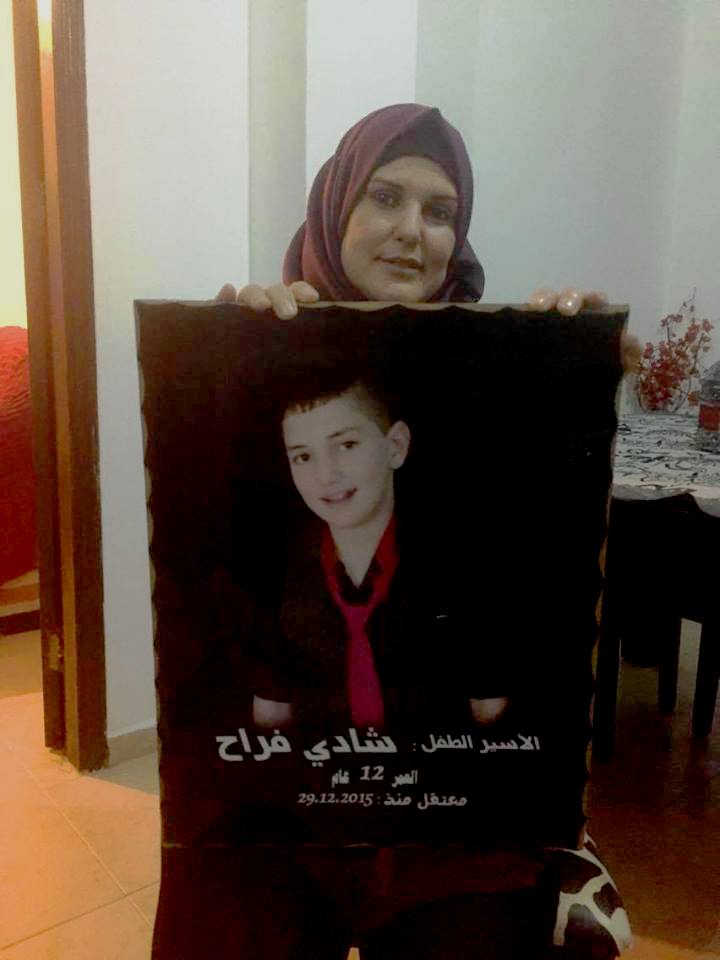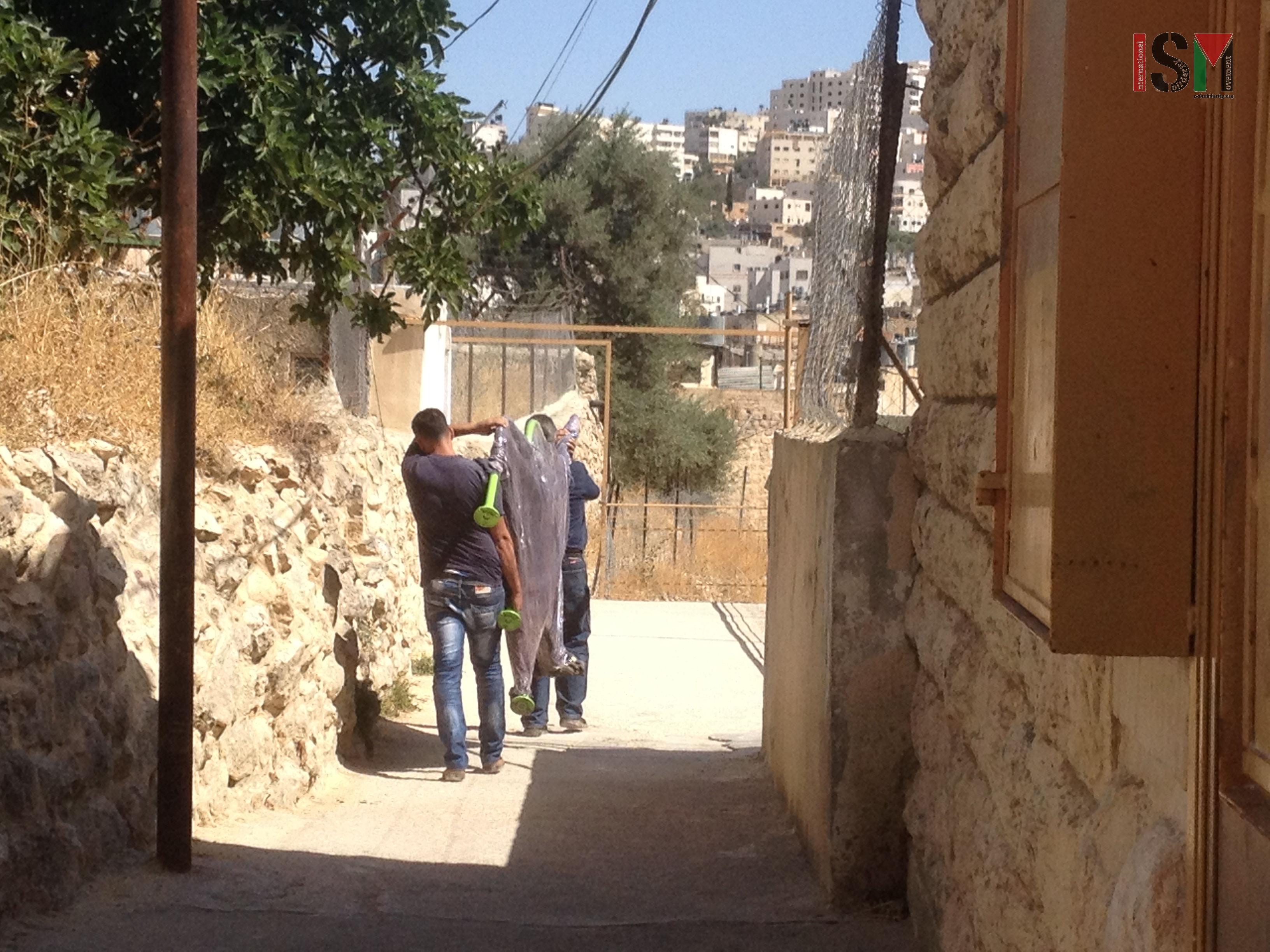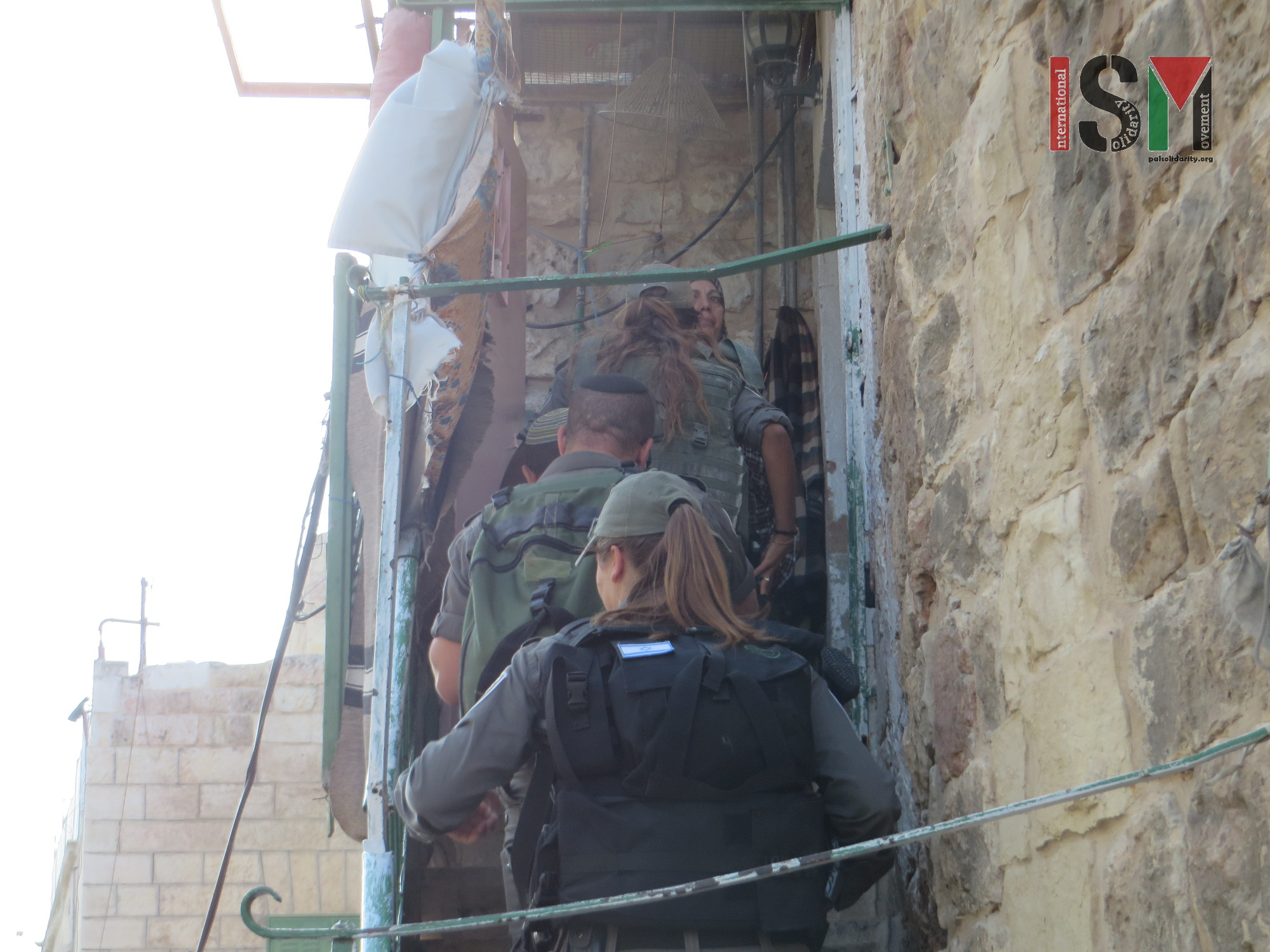Tag: Settlers
-
Call to Action: Support Shadi Farah, the youngest Palestinian Political Prisoner
20th July 2016 | International Solidarity Movement, al-Quds team | Jerusalem, occupied Palestine Shadi Farah is just 12 years old, but he’s caught in a trap that few adults ever manage to work their way out of. Last December, Shadi and his Friend Ahmad Zaatari, 13, were arrested at a bus stop in Jerusalem. A…
-
Right to play? Palestinian children in occupied al-Khalil
29th June 2016 | International Solidarity Movement, al-Khalil team | Hebron, occupied Palestine In occupied al-Khalil (Hebron), possibilities for Palestinian children to play are scarce. With the help of the Playgrounds for Palestine project, a brand-new playground was installed at Qurtuba school in the Tel Rumeida neighborhood of al-Khalil. Right to play – can you…
-
10-year old girl arrested on settler children accusation
5th July 2016 | International Solidarity Movement, al-Khalil team | Hebron, occupied Palestine Israeli forces on Monday 4th July arrested a 10-year old Palestinian girl near the Ibrahimi mosque in occupied al-Khalil (Hebron), as a group of settler children arbitrarily accused her of throwing an enormous rock at them. A large group of settler children…



